Search Images
Browse Content (p. 1540)
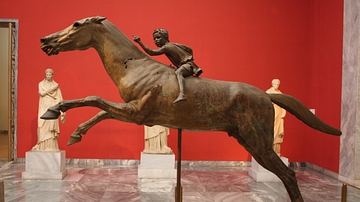
Image
The Artemision Jockey
A bronze jockey and horse, from a shipwreck off Cape Artemision, Euboea, c. 140 BCE. (National Archaeological Museum, Athens)
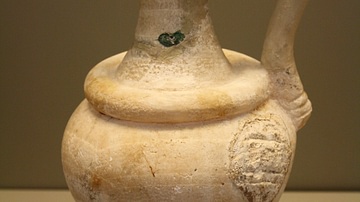
Image
Minoan Stone Jug
A Minoan alabaster jug, Crete, 15th century BCE. (National Archaeological Museum, Athens)
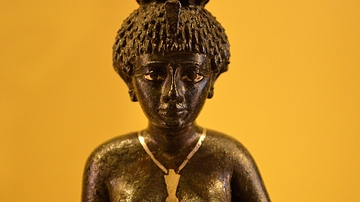
Image
Lady Kheredouankh
Kheredouankh is the mother of the deified architect Imhotep, designer of the pyramid of Djoser at Saqqara. This statue is made from bronze covered with gold, between 664-332 BCE, probably from the region of Memphis. Louvre Museum, Paris...
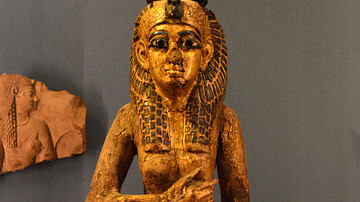
Image
The Goddess Isis
Statue of the Egyptian goddess Isis. Made of tamarisk wood, covered in bronze and glass. Date unknown. Louvre Museum, Paris, France.

Image
Queen Karomama I
Bronze statue of Queen Karomama I, "Divine Worshipper of Amun", wife of Osorkon II of the 22nd Dynasty of Egypt. The statue was made c. 850 BCE and is made of bronze covered with gold, silver, and electrum. It is dedicated to Iahentefnakht...
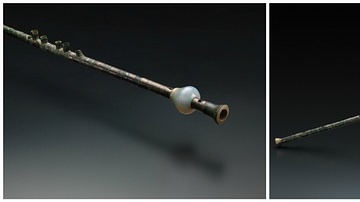
Image
Tibia
"The tibia was sounded with a double reed, and two pipes would have been played simultaneously. The small tubes or chimneys projecting from the side of this instrument and the rings encircling its body were likely part of a complex mechanical...
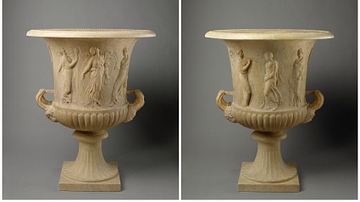
Image
Marble calyx-krater with reliefs of maidens and dancing maenads
"The peristyle courtyards and gardens of the villas belonging to wealthy Romans were filled with fountains, sculpture, and monumental ornaments such as this vase. Many of these decorative works were eclectic combinations of shapes and motifs...
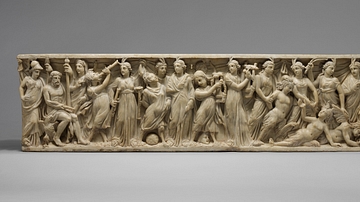
Image
Marble Sarcophagus with the Contest between the Muses and the Sirens
"The deities Athena, Zeus, and Hera, assembled at the far left, preside over a musical contest between the Muses and Sirens. The Muses, associated with the highest intellectual and artistic aspirations, are defeating the Sirens, creatures...
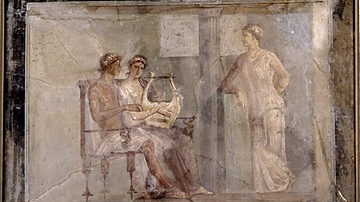
Image
Wall-painting of an Amorous Scene
Wall-painting of an amorous scene. The woman is holding a kithara.
1st century CE
Height: 58 centimetres
Length: 80 centimetres
London, BM, 1867,0508.1353.
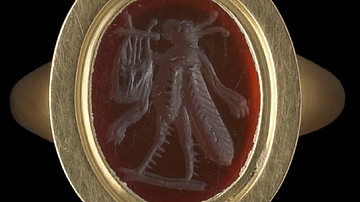
Image
Gem: Grasshopper Playing the Lyre.
Sard gem engraved with a grasshopper marching to the right, wearing a lion-skin and playing on a lyre.
Length: 1 centimetres
Height: 1.3 centimetres
1st-3rd centuries CE
London, BM, 1814,0704.1447.